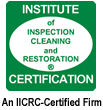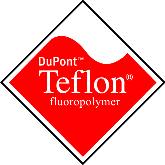
Living in an old house comes with its own unique charm and character. However, it’s not uncommon for old houses to harbor mysterious and unpleasant smells that can diminish the overall enjoyment of your living space. In this article, we will delve into the world of old house smells, identifying their common culprits and providing effective solutions to eliminate them. By understanding the root causes of these odors and implementing the right strategies, you can restore freshness and create a more pleasant environment in your cherished old house.
Musty Odors
Musty odors are one of the most prevalent smells found in old houses. These distinct, earthy odors are often a result of moisture intrusion or mold growth. Moisture can seep through the foundation, walls, or roof, leading to damp environments that foster the growth of mold and mildew. To address musty odors, it’s crucial to identify and eliminate the source of moisture. Proper ventilation, dehumidifiers, and professional mold remediation can effectively combat musty odors and prevent their recurrence.
Smoke Residue
Old houses may retain the lingering smell of smoke from previous occupants. Whether it’s from tobacco use, fireplaces, or historical factors, smoke residue can permeate walls, fabrics, and other surfaces, creating a persistent and unpleasant odor. To tackle smoke smells, a thorough cleaning is necessary. Wash walls, curtains, and carpets, and consider using odor-neutralizing products specifically designed for smoke removal. Ventilation and air purifiers can also help in clearing the air and reducing smoke odor. You can also hire professionals to use ozone generators to destroy smoke smells at the source!
Decaying Wood
As old houses age, the wood used in their construction can deteriorate, leading to a distinct and often musty odor. Decaying wood is typically caused by moisture damage, termites, or wood rot. Identifying and repairing areas of water intrusion, treating for pests, and replacing damaged wood are crucial steps in eliminating decaying wood smells. Proper maintenance and regular inspections can help prevent further wood deterioration and associated odors.
Sewer or Plumbing Issues
Foul odors emanating from drains, bathrooms, or basements are commonly linked to sewer or plumbing issues. Old houses may have outdated plumbing systems, damaged sewer lines, or clogged drains, resulting in unpleasant smells. Professional plumbers should be called upon to assess and resolve any plumbing or sewer-related problems. Regular drain cleaning, proper waste disposal practices, and regular maintenance can also prevent future odor issues.
Pet and Pet-related Odors
Pets can contribute to odors in any home, including old houses. Whether it’s pet urine, dander, or general pet odors, they can linger in carpets, upholstery, and other surfaces. Regular cleaning and grooming of pets, diligent carpet cleaning, and using pet-specific odor eliminators can help combat pet-related smells in your old house. Additionally, proper ventilation and air purification systems can help freshen the air and minimize pet odors. You can also call the pet odor removal professionals to eliminate the odor at the source using ozone generators!
Conclusion
Unveiling and addressing the culprits of old house smells is essential for creating a more pleasant and enjoyable living environment. By understanding the causes behind musty odors, smoke residue, decaying wood smells, sewer or plumbing issues, and pet-related odors, you can take the necessary steps to eliminate these odors and prevent their recurrence. Whether it’s through professional assistance, regular maintenance, or effective cleaning techniques, restoring freshness to your old house will enhance your overall living experience and allow you to fully appreciate the unique character and charm of your cherished home.








